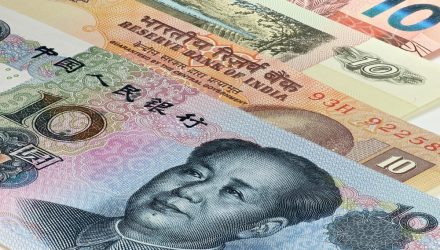For U.S. investors right now, it’s a battle of resilience amid the coronavirus outbreak that’s been racking the capital markets. It’s essentially a tug-of-war between whether it’s safer to stay at home in the U.S. or look for opportunities where the effects of the coronavirus may be subsiding like China.
Even if China has the virus contained, it’s by no means an all-clear signal for all Asian markets. Per a Bloomberg report, “circuit breakers were triggered in Thailand and the Philippines after the benchmark gauges of both countries slumped 10%, the most in Asia. Indonesia, where the stock exchange just tightened its rules, also suspended trading as the Jakarta Composite Index fell 5%. Both the SET Index and the Philippine Stock Exchange Index tanked the most since October 2008.”
“The markets in the last few days, even the winners have sold off,” said Kerry Goh, chief investment officer at Kamet Capital Partners Pte. “In 1998, Southeast Asia was down a lot more but it was the epicenter. This time, we’re being dragged down by the rest of the world.”
“Southeast Asian equities are now trading near their lowest in 14 years relative to global developed peers,” the Bloomberg report noted. “The MSCI Asean Index’s valuation of 14.5 times estimated earnings for the next year is now below 2-standard deviations of its 10-year average, data compiled by Bloomberg show.”
“We can expect continuing volatility,” said Mark Mobius, the veteran emerging-markets investor. “We are nearing the bottom, but no one can specifically point to a bottom. When there is great uncertainty, fear increases. Fear in turn results in retreat.”
For investors looking for the continued upside in emerging market assets as the effects of the coronavirus weaken in China, the Direxion MSCI Emerging Over Developed Markets ETF (NYSEArca: RWED) offers them the ability to benefit not only from emerging markets potentially performing well but from emerging markets outperforming developed markets.
RWED seeks investment results that track the MSCI Emerging Markets IMI – EAFE IMI 150/50 Return Spread Index. The Index measures the performance of a portfolio that has 150 percent long exposure to the MSCI Emerging Markets IMI Index and 50 percent short exposure to the MSCI EAFE IMI Index.
On the flip side, there’s the Direxion MSCI Developed Over Emerging Markets ETF (NYSEArca: RWDE). RWDE provides a means to not only see developed markets perform well, but a way to access a convergence/catch-up in performance of DM relative to EM, a spread that has clearly widened over the past 6 months. The fund seeks investment results, before fees and expenses, that track the MSCI EAFE IMI – Emerging Markets IMI 150/50 Return Spread Index.
The index measures the performance of a portfolio that has 150% long exposure to the MSCI EAFE IMI Index (the “Long Component”) and 50% short exposure to the MSCI Emerging Markets IMI Index (the “Short Component”).On a monthly basis, the Index will rebalance such that the weight of the Long Component is equal to 150% and the weight of the Short Component is equal to 50% of the Index value. In tracking the Index, the Fund seeks to provide a vehicle for investors looking to efficiently express a developed over emerging investment view by overweighting exposure to the Long Component and shorting exposure to the Short Component.
For more relative market trends, visit our Relative Value Channel.


